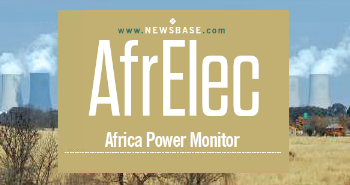AfrElec: Namibia investigates legal framework to regulate fledgling green hydrogen industry

As green hydrogen takes the country by storm, the Namibian government is eager to establish a legal framework that will regulate its green hydrogen project.
This is especially critical for environmental management, as its main project will be operating from Namibia's Tsau Khaeb National Park, the country's National Planning Commission director-general, Obeth Kandjoze, said in a statement.
“A new legal framework that will govern the new industry, green hydrogen,” Kandjoze told one of Namibia's main newspapers The Namibian in an interview. He said the current Petroleum Products and Energy Amendment Act, as well as the Minerals (Prospecting and Mining) Act, does not suffice to govern green hydrogen.
According to the Namibian Presidency Office, this green hydrogen project aims to generate 5 GW of renewable energy, while it would ultimately produce 300,000 tonnes per year (tpy) of green hydrogen for regional and global markets.
The Namibia government has appointed project-development company Hyphen Hydrogen Energy as the preferred bidder to develop the first large-scale vertically integrated green hydrogen project in the Tsau Khaeb National Park. The company will be subjected to due diligence, which will also scrutinise its environmental practices.
Following the conclusion of a feasibility study and sign-off by the government, Hyphen Hydrogen Energy will be granted the right to construct and operate the project for a 40-year period. The first phase is expected to enter production in 2026.
Kandjoze explained that much of the regulation’s principle would revolve around current knowledge of the industry. “But there are specialities around it… there are important lessons from it [the existing acts].”
Kandjoze says green hydrogen is an energy form with technical aspects which need to be part of the law.
“The implications of this may present the need for it to be legislated differently,” he said.
The presidential economic adviser and hydrogen commissioner, James Mnyupe, agreed the green hydrogen project will require the augmentation of some pieces of legislation.
“Our petroleum commissioner is already hard at work considering those envisioned changes. The project relies on other existing pieces of legislation, such as the Nature Conservation Act,” Mnyupe said.
The green hydrogen project will be set up in a small area zoned for exploration in the Tsau Khaeb National Park, a coastal diamond-mining area in the Namib Desert with abundant wind and solar resources.
“This park is the very basis for our future emerging industry. We will look into how we can position what we now know as a very strong emerging industry, which is green hydrogen ammonia,” Kandjoze said.
Mnyupe said the next step is for his government to enter into final negotiations with Hyphen, which will aim to finalise key aspects of the envisioned agreement.
“A key update on these negotiations should be available at the end of the first quarter of 2022,” he said, adding that on the conclusion of those negotiations, Hyphen should become the selected developer to conduct feasibility studies to consider the viability of the construction of the project.



Follow us online